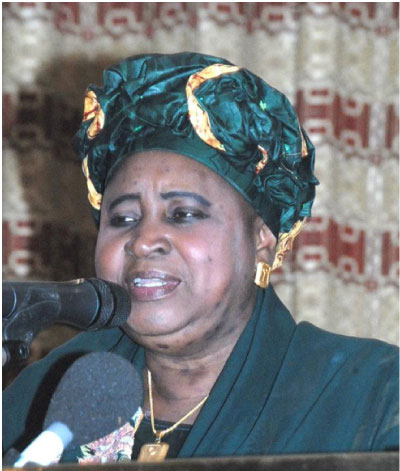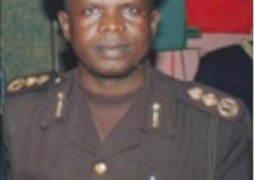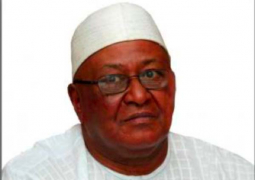
The Vice President and Minister of Women’s Affairs, Isatou Njie-Saidy, yesterday presided over the launching of the Shari’ah documents at a ceremony held at the Paradise Suites Hotel.
The documents include the Gambia Shari’ah law reports, volume 1; Gambia judicial lectures (Islamic personal law) vol.3; Rules on Islamic personal law application in The Gambia; Cadi Appeals Panel Rules 2009 and Court (Civil Procedure) Rules 2010.
They will afford Cadis Shari’ah and other practitioners, judges, students and the general public the opportunity to know Islamic law as it relates to marriage, divorce and inheritance in The Gambia.
In her launching statement on behalf of the President, Mrs Njie-Saidy described the occasion as historic for all Muslims living in The Gambia.
According to her, Islam is the religion for over 90% of the Gambian population and Sahri’ah or Islamic law has been part and parcel of the laws governing these Muslims prior to the coming of the colonialist over 400 years ago.
She stated that their presence, particularly the British also saw the recognition of certain aspects of Shari’ah as part of the laws of The Gambia for application to the indigenous communities that lived on the territory.
Noting that it was the 22 July Revolution that brought about unprecedented and significant changes to the Cadi court system in The Gambia, the Vice President said Section 7 of the 1997 Constitution of the Gambia recognizes Shari’ah as part of the laws of The Gambia applicable to Muslims in matters of marriage, divorce and inheritance.
She stated that the creation of an appellate court has also contributed tremendously to the administration of justice in accordance with the Shari’ah, and to the jurisprudence of the Cadi court system.
Government’s policy and priority, she went on, also include the strengthening of bilateral relations for the benefit of the people of The Gambia.
Nigeria, she added, has over the years provided significant technical assistance to the legal sector, including the judiciary and this assistance has now been extended to the Cadi courts.
“In addition to these documents, my government and her development partners have under the legal sector strategy, continued to support the judiciary in promoting access to justice and in expediting processes within the judicial system particularly the Cadi courts, with a view to improve and enhance the administration of justice within the Cadi system, and ensure quality in the delivery of various services within the said courts.”
She underscored that access and knowledge of Shari’ah by the general populace, particularly Muslims will also reduce conflicts, disputes and violence and increase the level of tolerance, improve economic and political empowerment and ensure national peace, prosperity and cohesion.
The Chief Justice of The Gambia, Justice Emmanuel Agim, said Cadi courts have now been established in Brikama, Kerewan and Basse and efforts are under way to establish one in Mansakonko.
“Formerly, there were no rules for the Cadis, but now that is in place. Rules and practices in court act as a judicial mechanism,” he said.
According to him, Cadis have been trained to write and read in English, noting that it is now a requirement to be able to write and read in English before appointment.
According to him, the strife for access to justice, particularly for the vulnerable can be achieved when the majority of the population have access to justice.
Also speaking at the launching ceremony was Lamin Jobarteh, Attorney General and minister of Justice, who underscored the importance of the documents, the rules and their application in The Gambia.
Noting that it is the first of its kind in The Gambia, Justice Jobarteh said with the Shari’ah law, people will be able to argue about cases even without the application of a lawyer.
Other speakers included Sheriff Tambedou, president of the Gambia Bar Association, Muhammed Lamin Touray, president of the Gambia Supreme Islamic Council, and Ousman Secka, president of the Cadi Appeals Panel.




